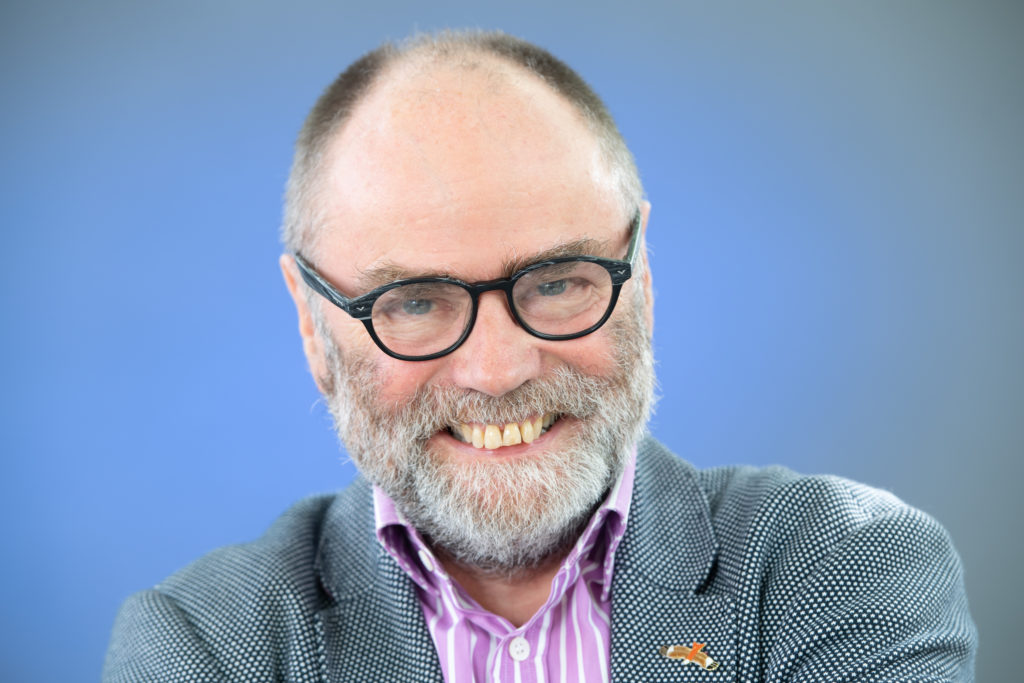Malachi O’Doherty ponders something that absorbs many Irish people — who are we? Malachi, at any rate, is sure who he is
A woman who grew up Protestant in Northern Ireland has written an interesting book about her identity angst.
Claire Mitchell’s The Ghost Limb recounts how she realised in adult life that she had been neglecting the Irish side of her nature. It is a ghost limb, like a part of her that was amputated but retains sensation. The difference of course is that this limb can be restored; she can rediscover her Irishness and be more comfortable with herself.
In her book she writes about other Protestant friends who are similarly discovering their Irish sides. They are doing this together by exploring the sites of the 1798 revolution of the United Irishmen in Antrim and Down.
Those revolutionaries were Presbyterian and had a conception of an Irish republic divorced from Britain, inspired by revolution in America and France.
Indeed, had they won, we might all be speaking French here now. I understand there are some traces of French in Irish Gaelic, the word gasur for boy, some say, derives from garçon.
Anyway, Claire’s reflections on the neglected and underdeveloped Irish side of her nature set me wondering if I might have a similar condition, a British ghost limb, and it didn’t take me long to realise that I don’t.
Not at all.
Not a trace of one.
There isn’t a cell of my body that has withered away for want of being British, let alone a whole limb.
Which doesn’t mean that I don’t have Britishness in my character, I just don’t have any inclination to worry about whether I am sufficiently British or not. I have other things to be getting on with.
My mother was born in Plymouth in 1916. Her father was a British seaman and her mother a descendant of an Irish family that had settled there, probably also with seafaring connections, since that’s what Plymouth was all about.
Most television that I watch is British. Many of the books I read are by British and Commonwealth authors (not exclusively, of course). I speak the English language.
I know some people would like to persuade me that my mother tongue is Irish but it isn’t. The language I learned literally at my mother’s knee was the one she spoke herself.
And, since Irish writers have contributed much to the shaping of that language, we are entitled to claim shares in it, whether in the vocabulary adopted from Irish Gaelic or in just the sheer dash and flair that Shaw, Wilde, Heaney and others brought to it.
The English gave us their language and we handed it back to them with some improvements. No need to say thank you.
But while I don’t feel that I have an underdeveloped British ghost limb I do feel that I am not really British. I felt this nonBritishness, or more specifically nonEnglishness when I lived in the north of England in the 1970s.
It didn’t bother me that I was not English but it was something that others, including close friends, seemed overly conscious of.
When hitchhiking, drivers would call me Paddy, not in a hostile way but definitely in a patronising way.
Even professional colleagues in a newspaper office would also, through their humour, remind me that I was not one of them.
And while that discomfort was a consistent and inevitable part of the backdrop to my life I never wanted to relieve it by making myself more English though I know Irish people who adopted an English accent.
Or maybe for some susceptible people that change happens naturally.
I resented the alienation of me as Irish, not because I wanted to be British but because it presumed that the Irish were inferior, to be regarded affectionately as somehow junior when not actually disdained. But the Irish are part of the whole cultural conversation which makes up Britain and the English speaking world. There is no clear cultural boundary between these peoples that I can find.
If I had been a Protestant unionist I would have had a political objection to being treated as not fully belonging but this wasn’t about the political union; it was about the failure of some of my English friends to understand that we in Ireland watch the BBC, read The Guardian, support English and Scottish football teams and that many of us speak English better than they do.
We also have a history intertwined with theirs going back centuries.
But there is another facet of the identity tension between the Irish and the British.
I suspect that a British and even American patronising of Ireland explains how silly films like Wild Mountain Thyme and The Banshees of Inisherin get to be made and how a revolting play like David Ireland’s Cyprus Avenue gets to win awards.
In Cyprus Avenue the main character, Eric Miller, is an Ulster loyalist. He tells his psychiatrist about having been to London where he fell in with an Irish crowd in a bar. He is still wrestling with the shame.
Having expected to be acknowledged as British in England he found himself at home culturally among the partying Paddies. His ghost limb had become a glad hand, despite himself.
Claire Mitchell, by contrast, looks around her at an Ireland she has been estranged from and wants to put that right.
In both cases it is political acculturation in Northern Ireland that has produced the confused sense of identity. Identity politics is our problem, not culture, which you are actually free to take or leave as you please.
MALACHI O’DOHERTY, one of Ireland’s leading political commentators and author of eleven books on the North of Ireland
 Malachi O'Doherty
Malachi O'Doherty
